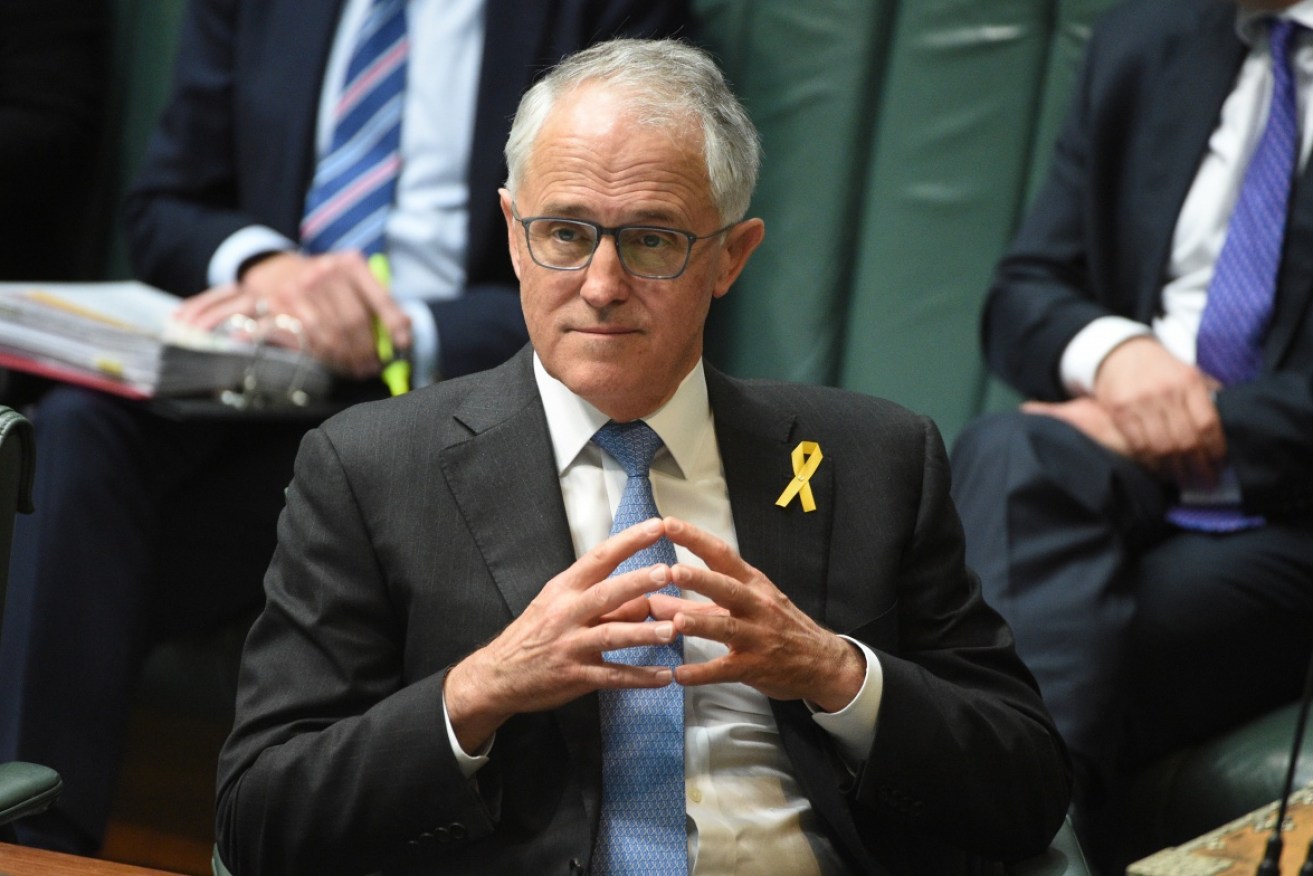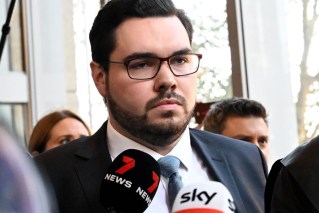Has Malcolm Turnbull delivered on his pledges to Australians?

One year of Malcolm Turnbull as PM has flown by. Has it been effective by his own measures? Photo: AAP
On this day one year ago, Malcolm Turnbull rose to the top job in Australia, replacing Tony Abbott as Prime Minister.
When he addressed the people after the party room coup, Mr Turnbull made a string of pledges about the kind of government he would run, how it would approach the business of governing, and what its priorities would be.
If the opinion polls were to be believed, voters approved of the new PM’s ascension and liked the sound of his promises. But 12 months on, has he honoured them?
We compare what he has achieved in his first year with what he said last September.
Mr Turnbull told reporters “we need advocacy, not slogans”.
He has tried to explain his policies and ideas more than Mr Abbott did, although some accuse him of speaking too much or ‘waffling on’.
Regardless, Mr Turnbull has not stopped the slogans; in fact, he has adopted one of Mr Abbott’s most notorious phrases – “jobs and growth”.
“Jobs and growth” became so ubiquitous during the election campaign that it was rare that a Coalition MP would not use it when speaking.
Mr Turnbull and his MPs have also continued to use “stop the boats”, another loathed Abbott-ism.
And he hasn’t just borrowed slogans from Mr Abbott. Mr Turnbull has coined slogans like “stable government” and “there’s never been a more exciting time to be Australian”, during his year as PM.
The Coalition won the July double dissolution election. Technically, Mr Turnbull delivered on this promise.
But at what cost? Mr Turnbull just avoided a hung parliament with a one-seat majority.
The Coalition lost 14 seats, while Labor won 14 seats in the House of Representatives.
The Coalition also lost three Senate seats. Both the upper and the lower house have extended crossbenches.
Overall, Newspoll data showed Mr Turnbull has improved on Mr Abbott.
On September 7, 2015, Mr Abbott trailed Mr Shorten as better PM, 41 to 37. Mr Turnbull’s preferred PM rating soared when he became Prime Minister, peaking at 64 in November 2015.
It’s dropped since, but still dwarfs Mr Abbott’s final level and Mr Shorten’s current mark, 43 to 31.
On September 7, 2015 the Coalition trailed Labor in the two-party-preferred Newspoll 54 to 46. Currently it is locked at 50-50, which is not as strong as the Coalition’s peak two-party-preferred mark under Mr Turnbull (53 to 47), from early November 2015 to early February 2016.
Mr Turnbull has a worse net satisfaction rating than Mr Shorten (-19 to -17), which is an improvement from Mr Abbott’s final -33 score.
Mr Turnbull reportedly made a captain’s call during former PM Kevin Rudd’s bid to be United Nations secretary general.
Fairfax Media reported Cabinet voted 11-10 in favour of endorsing Mr Rudd for the role, but Mr Turnbull vetoed that vote’s outcome.
While that is a fail for promising no captain’s calls, Mr Turnbull reportedly relented to his Cabinet when he tried to push through changes to negative gearing, according to the Peter van Onselen, Wayne Errington book The Turnbull Gamble.
When Mr Turnbull challenged Mr Abbott, business confidence was at the figure of six, according to the NAB Australian Business Confidence survey.
At Mr Turnbull’s one-year anniversary as PM, it also sits at six.
However it was at 12 when Mr Abbott became PM in September 2013. The survey was at ‘one’ three times during Mr Abbott’s reign, showing a dramatic fall from when he took over.
Mr Turnbull said the Coalition’s policies needed to change.
While Mr Turnbull might want to make changes to represent the values that he said needed to be represented in policy, the overall policy direction is the same as Mr Abbott’s.
“Mr Turnbull is leading as a typical Coalition leader would. He is trying to balance the conflicting forces on his side of the parliament,” University of Newcastle politics expert Associate Professor Jim Jose told The New Daily.
“While he has made some changes, he has kept the policy trajectory pretty much as it was before he became leader. Not much has changed.”
Monash University economic policy expert Dr Gennadi Kazakevitch told The New Daily that Mr Turnbull had been providing sound economic leadership.
“Something to replace the mining boom is vital for this country, and innovation, post industrial economy, is that,” Dr Kazakevitch said. “Mr Turnbull has ideas about that.
“But the overall economic environment needs to change first, for a more welcoming innovation climate.
“Mr Turnbull has made the first steps though, with his innovation agenda.”
















